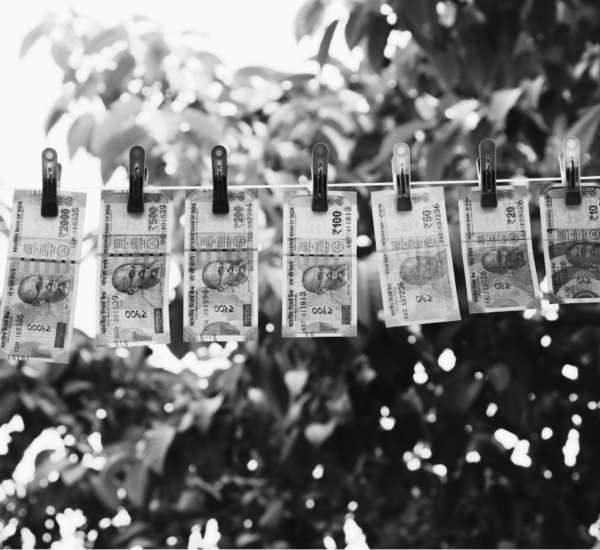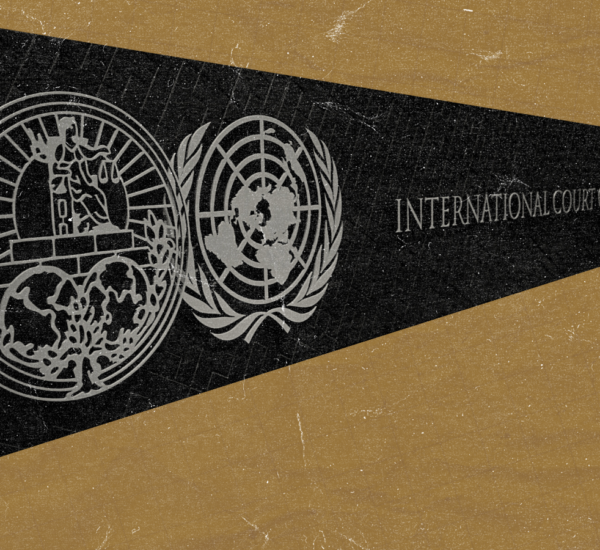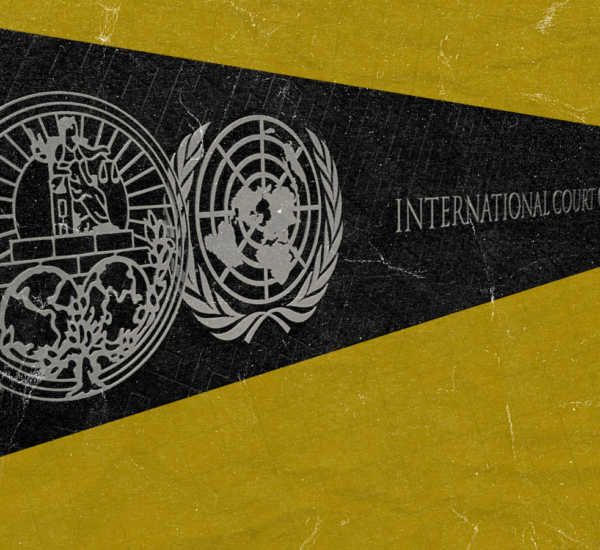
Shrutanjaya Bhardwaj
Introduction
The presumption of innocence is a traditional principle of Indian criminal law. Generally speaking, every accused person is presumed innocent until proven guilty by the State. But some Indian statutes deviate from this principle. These deviations are a component of a larger move towards “special” criminal laws to deal with “extraordinary” offences which, it is sometimes suggested, ordinary criminal law cannot adequately deal with. The deviations—which, this piece will argue, are unconstitutional—are found at two distinct stages in these ‘special’ criminal laws: (i) the stage of grant of bail, and (ii) the stage of final verdict/determination of guilt.
As regards the first, some special laws impose what are commonly called the “twin conditions” of bail, stipulating that bail cannot be granted to the accused unless (i) the public prosecutor has been given the chance to oppose the bail plea, and (ii) the judge has reasonable grounds to believe that the accused is not guilty of the alleged offence. The second condition effectively places a presumption of guilt which, if not rebutted by the accused through “reasonable grounds”, bars the grant of bail. Illustratively, some laws stipulating these twin bail conditions are listed in the Appendix.*
As regards the stage of final verdict, some special laws state that the accused shall be presumed guilty unless proven to the contrary. E.g., S.35 of the NDPS Act states that mens rea is presumed to exist on part of the accused (although the presumption is rebuttable), while S.54 places a presumption as to the actus reus in respect of an accused who is found in possession of a prohibited substance and fails to account satisfactorily for the same. S.29 of the POCSO Act, 2002 states that in respect of certain offences under the Act, the Special Court “shall presume” (again a rebuttable presumption) that the accused has committed them, while S.30 states that the Court shall presume mens rea on part of the accused wherever relevant.
The constitutional validity of these deviations depends on whether the presumption of innocence is a fundamental right—or, putting it more elaborately, whether the deprivation of the presumption produces an unjust, unfair and unreasonable procedure by which the right to life and personal liberty cannot be taken away. The Supreme Court’s approach on this aspect has been inconsistent over the years. This piece studies the trajectory of case law on this issue, and argues that the presumption of innocence flows from the due process guarantee of Article 21, thus being a fundamental right. [Other constitutional concerns, such as those arising from Article 20(3), are not dealt with here.]
Inconsistent jurisprudence
The presumption of innocence has not received consistent judicial treatment over the years. This part illustratively discusses some judgments to show the contrasting positions.
In 1980, the Constitution Bench in Gurbaksh Sibbia (1980) hailed the presumption as “salutary and deep[ly] grained in our criminal jurisprudence” but stopped short of saying that it flows from Article 21. Nonetheless, the Court held that while interpreting S.438 Cr.P.C.—which provides for the grant of anticipatory bail—a liberal approach must be adopted in view of the presumption of innocence, for “the right to personal freedom cannot be made to depend on compliance with unreasonable restrictions.” A holistic reading of Sibbia suggests that the Court implicitly recognises a link between Article 21 and the presumption of innocence, though it is not precisely spelt out.
In Narendra (2004), a Division Bench labelled the presumption a “human right” while holding that the burden of proof always remains on the prosecution in a criminal trial, even where a plea of alibi is raised. This label was reiterated in context of the twin conditions under MCOCA by a 3-judge bench in Ranjitsing Sharma (2005). Like in Sibbia, the Court spoke of Article 21 and the presumption of innocence in the same breath: “Presumption of innocence is a human right. Article 21 in view of its expansive meaning not only protects life and liberty but also envisages a fair procedure. Liberty of a person should not ordinarily be interfered with unless there exist cogent grounds therefor….” Yet, conspicuously, the Court did not commit itself to a position concretely linking the presumption with Article 21.
Some subsequent Supreme Court judgments appear to diverge. In Noor Aga (2008), where the Court was considering the draconian provisions of the NDPS Act which reverse the presumption of innocence, the Court held that the presumption may be a “human right” but cannot be “equated with the fundamental right and liberty adumbrated in Article 21”. Accordingly, the mere placing of the burden of proof on the accused in certain cases would not render the provisions of the NDPS Act unconstitutional. Closely upon the heels of Noor Aga, the Court in Vinod Solanki (2008) and other cases found it “well settled” that the presumption of innocence is only a “human right” and not a “fundamental right”.
Finally, at least three later judgments—one by a Constitution Bench and two by a 2-judge bench each—expressly hold that Article 21 includes the presumption of innocence. First, in Manu Sharma (2010), the Court was considering the impact that media trial can have on the right of the accused to a fair trial. Stating that media trial can potentially destroy the presumption of innocence, the Court held that such a scenario would be “opposed to the very basic rule of law and would impinge upon the protection granted to an accused under Article 21.” Second, carrying this sentiment forward, the Constitution Bench in Sahara v. SEBI (2012) explicitly held that the presumption of innocence is embedded in Part III of the Constitution “not only as part of rule of law under Article 14 but also as an Article 21 right”, and hence the freedom of speech under Article 19(1)(a) can be restricted, under a balancing exercise, to protect the presumption from the dangers posed by a media trial. Third, in Nikesh Shah (2018), the Court struck down the twin conditions of bail under S.45 of the PMLA, finding them violative of Articles 14 and 21. Calling S.45 a “drastic” provision which turns the presumption of innocence on its head, the Court reasoned: “Before application of a section which makes drastic inroads into the fundamental right of personal liberty guaranteed by Article 21 of the Constitution of India, we must be doubly sure that such provision furthers a compelling State interest for tackling serious crime.”
Note that while all three judgments find a direct link between Article 21 and the presumption of innocence, their rulings are different in a crucial way. Manu Sharma appears to treat the presumption of innocence as absolutely sacrosanct, for its violation is said to be “opposed to the very basic rule of law”. Sahara and Nikesh Shah, on the other hand, suggest that the presumption can be taken away or ‘balanced’. This narrow distinction aside, however, both judgments mark a significant advance from the position that Article 21 has nothing to do with the presumption of innocence which can be taken away by the State without any constitutional implications.
The link with Article 21
Article 21 permits the State to breach the right to life and personal liberty (such as by incarcerating a convict) only after following a fair, just and reasonable legal procedure. Keeping the above judgments aside, the link between Article 21 and the presumption can be traced directly to the ‘just, fair and reasonable’ requirement. There are at least two reasons why the presumption of innocence is an important aspect of fairness and reasonableness in criminal law.
Compliance with Article 14
As held in Maneka Gandhi (1978), a law restricting personal liberty must also pass muster under Article 14. Hence, if the law makes a classification, it must be shown that the classification has a rational nexus with the object sought to be achieved. Article 14 also prohibits an unreasonable classification made by a combination of laws; hence, if two offenders are treated differently from the perspective of the presumption of innocence by two different statutes, the tests of Article 14 would need to be satisfied.
The object of criminal law is to secure convictions of the guilty and acquittals of the innocent. It is true that the relative importance of these two goals is different under the two models of criminal law. The ‘crime control’ model focuses more on securing punishment for the guilty and endorses the possibility of mistakenly convicting innocent persons on a few occasions. Protections for the accused are lowered under that model. In contrast, the ‘due process’ model places more emphasis on strengthening protections for the accused, even if that means let “a hundred guilty men go scot-free”. Despite these differences, however, both models follow the common aim of punishing the guilty and sparing the innocent—neither model aims to punish the innocent, and neither aims to spare the guilty. To be meaningful, even the crime control model must avoid wrongful convictions, for every wrongful conviction means that the actual offender remains scot-free, which fact is unknown to the State.
Seen in light of this common goal, it makes little sense to remove the presumption of innocence from cases involving “heinous” offences while retaining it for other offences. Whether an offence is heinous or petty has nothing to do with the veracity of the allegations likely to be raised against the accused. In other words, the heinousness of an alleged offence does not make the allegations any less likely to be false; no rational nexus exists between the common goal (of punishing the guilty and sparing the innocent) and the classification between a person falsely accused of theft—who enjoys the presumption of innocence, and a person falsely accused of drug trafficking—who is stripped of the presumption.
As regards bail, the State certainly has a bigger interest in preventing the more heinous offences from being repeated by the accused. However, that interest can be achieved equally effectively under the traditional rules governing grant of bail, which require the Court to inter alia consider the gravity of the offence, evaluate the prima facie case against the accused, and judge his antecedents. In fact, if anything, the heinousness of the offence should imply heightened (not lowered) protection for the rights of the accused. As the Constitutional Court of South Africa notes in Coetzee: “There is a paradox at the heart of all criminal procedure, in that the more serious the crime and the greater the public interest in securing convictions of the guilty, the more important do constitutional protections of the accused become. The starting point of any balancing enquiry where constitutional rights are concerned must be that the public interest in ensuring that innocent people are not convicted and subjected to ignominy and heavy sentences, massively outweighs the public interest in ensuring that a particular criminal is brought to book.”
The drawback of the Article 14 argument, however, lies in the fact that it is relative. It can be sustained only if some laws continue to grant the presumption of innocence. If the presumption is taken away from all criminal laws at once, there would remain no comparator and no classification to test against Article 14. We must therefore look for an absolute argument suggesting that the presumption of innocence flows from Article 21.
Compliance with international standards
The Supreme Court in Vishaka (1997) had held that international rights conventions are relevant in interpreting the fundamental rights provisions of our Constitution. “Any international convention not inconsistent with the fundamental rights and in harmony with its spirit must be read into these provisions to enlarge the meaning and content thereof, to promote the object of the constitutional guarantee.” Therefore, in determining whether fairness requires presumption of innocence, it is important to turn to international conventions.
It will be seen that these instruments strongly favour the presumption of innocence as a fundamental right. Both the Art.11(1) UDHR as well as the Art.14(2) ICCPR recognize the presumption of innocence as a fundamental right and hold, in almost verbatim terms, that “everyone” charged with an offence has “the right to be presumed innocent until proved guilty according to law”. Even starker is the Rome Statute of the International Criminal Court, established to prosecute the most heinous offences known to us, including genocide, crimes against humanity, war crimes and crimes of aggression. Article 66 of this instrument states, without exceptions, that “[e]veryone shall be presumed innocent until proved guilty before the [International Criminal] Court in accordance with the applicable law.” Sub-article (2) further provides that the Prosecutor shall have the burden to prove the guilt of the accused.
These are strong indications that the requirement of fairness in Article 21 should be understood to encompass the presumption of innocence regardless of the heinousness of the offence alleged.
Concluding remarks
Every accused, regardless of the offence he is charged with, is entitled to the presumption of innocence as a basic requirement of fairness under Article 21 read with Article 14. This is a requirement of Article 14 as well as an imperative principle under international human rights conventions. However, the Supreme Court’s judgments over the years have not been consistent in hailing the presumption as a requirement of fairness. It is hoped that the Court will soon reconcile previous judgments and declare the presumption of innocence as a fundamental component of fair and just procedure under Article 21.
Appendix: Illustrative list of statutes imposing twin bail conditions
| S. No. | Statute | Section |
| Drugs and Cosmetics Act, 1940 | 36-AC | |
| Unlawful Activities (Prevention) Act, 1967 (UAPA) | 43(5) | |
| Narcotic Drugs and Psychotropic Substances Act, 1985 (NDPS) | 37 | |
| Terrorist and Disruptive Activities (Prevention) Act, 1987 (TADA) (repealed) | 20 | |
| Prevention of Money Laundering Act, 2002 (PMLA) | 45 | |
| Suppression of Unlawful Acts Against Safety of Maritime Navigation and Fixed Platforms on Continental Shelf Act, 2002 | 8 | |
| Anti-Hijacking Act, 2016 | 12 |
The author is an Advocate practising in New Delhi. He is grateful to Mr. Saral Minocha and Mr. Ayush Baheti for their suggestions.





